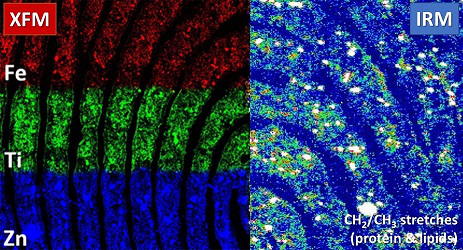About this event
Microscopy is the tool for characterising the spatial distribution of elements and chemical compositions within a diverse range of samples. At the Australian Synchrotron, we have two beamlines dedicated to microscopy with a third beamline under construction (Nanoprobe to be completed in 2024). Our X-ray Fluorescence Microscopy (XFM) beamline specialises in mapping the spatial distribution of most elements heavier than aluminium, while our Infrared Microspectroscopy (IRM) beamline analyses chemical compositions in a broad range of samples from biology, medicine to archaeology and minerals.
The two-day workshop will cover the capabilities of the microscopy beamlines and highlight the potential to access both beamlines for comprehensive analysis of many types of samples.
Thursday 20 May
Day 1 will focus on the XFM beamline. We will explain the beamline capabilities and give examples and case studies over a wide range of samples and research disciplines. We will describe the information XFM and spatially resolved X-ray absorption near edge spectroscopy (XANES) can provide. Some power XFM users will expand further with presentations of their research. There will be discussion of future developments and directions for XFM and correlated X-ray microprobe techniques.
Friday 21 May
Day 2 will introduce the IRM beamline. The capabilities of the beamline will be explained, with examples of the types of samples that can be studied, and the information that can be gained from synchrotron IR microanalysis. This will be expanded further through a series of presentations from researchers currently making use of the IRM beamline. The workshop will also include advice on the process of applying for access to the beamline, and a discussion of potential future developments at the facility.
Who should attend?
We would encourage anyone with an interest in elemental and chemical microanalysis over a wide range of research disciplines to attend. This includes undergraduate, honours and postgraduate students, postdoctoral researchers, early career researchers and laboratory group leaders.
Registration
Registration for this event is currently open.

